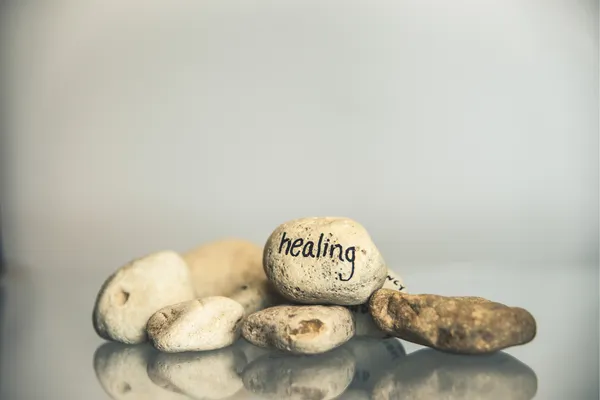MENU
BLOG

Treating Sex Hormone Imbalances
Sex hormones are that are involved in the regulation of sexual development and reproduction. The primary sex hormones are estrogen, progesterone, and testosterone. Men and women have all of these, just in different amounts and ratios...
When men and women have low energy caused by an imbalance in their sex hormones, it is usually from different hormones. For men, it is usually due to a testosterone deficiency. For women, it is usually due to estrogen and/or progesterone imbalances.

Sex Hormones & Low Energy
The symptoms of menopause are no joke. They are incredibly uncomfortable and can change the quality of your life significantly. When a woman comes to me with menopausal symptoms, she is usually pretty desperate for relief. I use both natural and pharmaceutical therapies to get her that relief.

Treating Thyroid Disease
I am a big believer in natural medicine. It can be very powerful and work very well. I prefer to use it as long as the natural treatment is safe and strong. Unfortunately, when treating low thyroid, we usually need both the natural and the prescription treatments. In college, I learned from playing the card game euchre not to “send a boy to do a man’s job.” In medicine, this means using the treatment that you know will work. If I think a natural treatment will work, but I know that a medication will work, I should use the medication as long as there are no significant side effects. This is because I want to make sure you get results right away so that you can get your life back

Treating Thyroid Disease
Thyroid disease is one of the most common health problems we face today. The majority of people with thyroid dysfunction have hypothyroidism. Hypothyroidism (“hypo” means low) is a condition where the amount of thyroid hormone in your body is less than what is needed for optimal function. According to the American Thyroid Association, more than 12 percent of the US population will develop a thyroid condition during their lifetimes, and more than half will be unaware that they have a problem. Women are five to eight times as likely as men to develop thyroid problems.

Advanced Adrenal Recommendations
Last week, I went over the recommended supplements to treat Adrenal Fatigue. This week I’ll go over adrenal recommendations as well as a plan to reduce stressors.
Treating the physical symptoms is only the first step. Once you start to feel better, it’s important to begin addressing the causes of the problem: the sources of stress that compromised your adrenals in the first place.

Testing & Supplement Options for Adrenal Fatigue
Last week we discussed the main symptoms as well as the causes of adrenal fatigue. This week, I will focus on testing and supplement options for treatment.
If you have most of the symptoms listed last week, you probably have adrenal fatigue. However, how do we test for adrenal dysfunction?

How Adrenal Fatigue Causes Chronic Fatigue
This week I will discuss how adrenal fatigue is a primary cause of chronic fatigue.
It's estimated that up to 80% of adults experience adrenal fatigue during their lifetimes, yet it remains one of the most under-diagnosed illnesses in the United States. Conventional medicine does not yet recognize adrenal fatigue as a distinct syndrome

Food Allergies & Low Energy
Food allergies can cause almost any symptom the body can manifest, including low energy. The gastrointestinal tract maintains a delicate balance of good bacteria, specialized immune cells, and various neurological and hormonal activities. In fact, 80% of your immune system resides in your gut, so anything you put in your mouth can trigger a reaction. Once your digestive system detects what it considers a “foreign particle,” your immune system reacts, and the inflammation that follows creates pain and dysfunction.

Food and Your Energy
Food is a touchy subject, especially if you’re not feeling well. We have a lot of emotional attachments to it, and it can give us joy at times when nothing else can. However, food allergies play a significant role as a cause and contributor to fatigue and, as a doctor, I have seen amazing improvements in the health of my patients when they change their food choices.

Fix Your Emotional Health - Part 3
I asked my wife, Stacy, to write a series of posts on how to fix your emotional health this is the third and final part of the series by Stacy Hirsch, MES, ACC, CDWF
Early Causes of Emotional Dysregulation
“Traumatized people chronically feel unsafe inside their bodies: The past is alive in the form of gnawing interior discomfort. Their bodies are constantly bombarded by visceral warning signs, and, in an attempt to control these processes, they often become expert at ignoring their gut feelings and in numbing awareness of what is played out inside. They learn to hide from their selves”.
~ Bessel van der Kolk.
When you can no longer respond effectively to the ongoing demands of your environment, you become less organized in your thoughts, actions, and interactions. You enter a state of emotional dysregulation. Your responses become exaggerated, you overreact, you take on unappealing behaviors, and you are more likely to create chaos, drama, or conflicts.
Often the roots of emotional dysregulation may be found in your past.
Adults living with high stress or those with chronic health conditions, such as fatigue, are often unaware that toxic stress experienced as a child, and the adaptations they made to survive their unmet needs, may be partially responsible for their symptoms. Some of my clients believe their chronic fatigue is a byproduct of getting older. They have come to expect the failure of the physical body because it happened to their parents or it happens to everyone with age. It is difficult to grasp that disease processes may have been set in motion as far back as childhood, long before their first symptoms appeared.
Physicians Vincent Felitti and Robert Anda were the first to study the link between childhood adversity and adult health outcomes. In 1995 they surveyed 17,000 Kaiser Permanente patient volunteers about their exposure to ten types of childhood trauma, or Adverse Childhood Experiences (ACEs).
An ACE was defined as a stress-inducing event that was chronic and unpredictable. The ten adverse experiences they chose from the research were:
🔸 Physical abuse
🔸 Sexual abuse
🔸 Emotional abuse
🔸 Physical neglect
🔸 Emotional neglect
🔸 Mother treated violently
🔸 Household substance abuse
🔸 Household mental illness
🔸 Parental separation or divorce
🔸 Incarcerated household member
That survey data was compared with a patient health history for each participant. The results showed that adverse childhood experiences were much more common than anyone had previously thought, with two-thirds of individuals reporting at least one adverse childhood experience. Researchers followed participants over time and determined that ACEs have a dose-response relationship, meaning the more ACEs you have, the greater your risk as an adult for developing chronic health conditions and engaging in risky health behaviors.
There are other adverse childhood experiences that can be equally damaging to a child such as bullying, generational trauma, homelessness, racism, homophobia, illness, accidents, a traumatic birth, chronic hunger, and family financial stress.
What about the adults who live with the consequences of an environment that failed them as a child? What about those with a history of trauma who are now experiencing fatigue and want to get back to living life?
Fortunately, there are tools for people like us! I will be discussing these in the sections on practices and therapies.
It is difficult to find doctors who work with adults, who understand the connection between illness and childhood adversity, and have the tools to treat mysterious and debilitating symptoms. That is what excites me most about this website. Dr. Hirsch has designed an approach to healing fatigue that gets to the root causes of the illness, including emotions.
In my opinion – and even traditional medical providers will agree – emotional health is almost always at the root of physical symptoms. Once you have symptoms, there are real physical problems you must address.
In the past ten years, there has been a dramatic increase in research exploring brain science, epigenetics, emotional well-being, and resilience. This data, combined with the functional medicine tools and protocols discussed on this website, provide powerful opportunities to regain your health and re-connect with the person you were always meant to be.
Assess your ACEs
An ACE assessment tallies abuse, neglect, and other hallmarks of a challenging childhood. According to the Adverse Childhood Experiences study, the more issues you experienced before you turned 18, the higher your score is likely to be and the higher your risk for later health problems.
The ACEs assessment is meant to be used as guidance in assessing one type of risk factor. There are other risk factors that can contribute to ill health such as genetics, diet, and other lifestyle choices.
As your ACE score increases, so does the risk to your physical and emotional health. An ACE score of 4 or more can be significant, increasing the likelihood of chronic pulmonary lung disease by 390 percent; hepatitis, 240 percent; depression 460 percent; and suicide, 1,220 percent.
In one study, exposure to childhood trauma was associated with a 3- to 8-fold increased risk for Chronic Fatigue Syndrome across different trauma types.
Use the Resilience Questionnaire to reflect on the supportive factors that helped you navigate childhood.
The Devereux Adult Resilience Survey can help you reflect on your current strengths and make a plan for how to improve your overall well-being.
Your Potential to Heal in Body and Mind
“When people clear out their trauma, compassion is their natural state. Compassion is part of our nature”.
~ Gabor Maté, MD
Resilience is the ability to rebound from emotional distress, trauma, and adversity. It is about having the capacity to respond when your stress response gets activated. It’s not about pushing yourself out of your comfort zone and powering through your symptoms. It is much subtler, and it is grounded in your willingness and ability to listen to your body and emotions and compassionately respond to what surfaces.
What does resilience look like?
People who are resilient have a certain level of confidence and understand their strengths and abilities. They can solve problems and are effective at communicating, even when things are challenging. When strong emotions arise, they can manage their feelings without alienating others.
It is never too late to become more resilient, to stop tolerating life and begin to listen to what your symptoms are trying to tell you. The research suggests that there are numerous things you can do to strengthen your ability to respond to life’s challenges such as cultivating more social support, practicing mindfulness, staying physically active, nurturing a growth mindset, and reframing painful or challenging emotions.
The next section will provide more information on practices and therapies that increase resilience. I have listed a few to get you started, but you can find more at LifeTakesPractice.com.
Healing and Self-Care Practices
Now that you understand how your emotional health may be playing a role in your fatigue, you can start using practices and therapies to support your overall healing. I have been working with practices for the past twenty years and using many of the therapies I describe below. You can find a comprehensive list of my foundational practices at LifeTakesPractice.com.
🔹 Gratitude.
There is an abundance of scientific research demonstrating that practicing gratitude on a regular basis can improve your overall health and sense of well-being. Studies have found that a gratitude practice can help you overcome traumatic events and increases your resilience, strengthens your immune system, lowers blood pressure, and reduces symptoms of illness, so you feel less bothered, supports you in taking better care of your health, improves your sleep and strengthens your relationships.
🔹 Self-Compassion.
Research shows that people who practice self-compassion cope better with stress than those who are more critical. Self-compassion reduces your tendency to catastrophize negative situations, experience anxiety following a stressor, and avoid challenging tasks for fear of failure. Self-compassion can help you cope when you experience negative life events.
Kristin Neff, a researcher and author, has identified three elements of self-compassion:
Self-kindness – being kind to yourself in times of suffering. Recognizing that failure and disappointment are a part of life and using self-kindness to moderate your emotional response to stressful or challenging moments.
Common humanity – recognizing that we all suffer and that setbacks and difficulties happen to everyone.
Mindfulness – taking a balanced approach to your emotional state. Holding your negative thoughts and emotions with mindful awareness and avoiding becoming overly reactive.
🔹 Writing.
Dr. James W. Pennebaker has conducted much of the research on the health benefits of expressive writing. It is believed that the act of thinking about a traumatic or stressful event while also tuning into and expressing the emotions helps people process the experience and understand the greater meaning. It provides a structure for managing the anxious thinking and helps bring more organization to a person’s system.
🔹 Meditation.
Many believe that meditation is one of the most effective ways to moderate stress and increase your emotional intelligence. The practice of meditation helps people cultivate a state of mindful awareness. This state can help neutralize stressful thoughts and emotions by bringing us into the present moment’s reality. At LifeTakesPractice.com, I have designated meditation as a foundational practice because everything in your life is impacted by the degree to which you are mindful.
Healing Therapies that Work
Emotional Freedom Techniques (EFT) is an energy psychology practice that can be used to manage or reprogram your stress response. EFT works on the same meridians used in acupuncture, but instead of needles, one uses the fingers to stimulate specific energy points on the body. While focusing on a problem, negative emotion or stressor, you tap the energy meridians on your body and verbalize specific positive affirmations. This process changes the emotional circuitry of the body and removes energetic blocks. The technique is simple and easy for anyone to learn and begin practicing immediately. Search for a practitioner at eftuniverse.com and thetappingsolution.com.
HeartMath is a scientifically proven stress management system that uses tools and technology to connect the head with the heart, much like the practice of meditation. Communication between the heart and brain influences perception, emotional processing, and higher cognitive functions. Research has demonstrated that intentionally focusing on positive emotions can create more physiologic harmony within the body, shifting your relationship away from stressful thoughts, emotions, or traumatic experiences. Learn more at heartmath.org.
NARM (NeuroAffective Relational Model) is a somatic psychotherapy that focuses on supporting an individual in restoring vital connections in three key areas of life experience: physiological, psychological, and relational. The NARM framework is built on exploring five biologically based core needs that are essential to healthy development.
These include our needs for:
🔸 Connection – the capacity to be in touch with your body and your emotions and to be in connection with others.
🔸 Attunement – the capacity to attune to your needs and emotions and to recognize and reach for physical and emotional nourishment.
🔸 Trust – the capacity for healthy dependence and interdependence
🔸 Autonomy – the capacity to set appropriate boundaries, say no, set limits, and speak up without guilt or fear.
🔸 Love-sexuality – the capacity to live with an open heart and to integrate a loving relationship with a vital sexuality.
When these biological needs are met, you are better able to develop core capacities that support you in becoming a healthy and vibrant adult. When a biologically based core need is not met as a child, or only partially met, predictable emotional and physical symptoms result: a decreased capacity for self-regulation, a diminished sense of self, and compromised self-esteem. By paying attention to your emotions, you can begin to let go of those survival patterns you needed as a child but that no longer serve you as an adult. With this awareness, you can now establish a better way of relating to yourself and the world around you. You can find a practitioner at drlaurenceheller.com/practitioners.html.
Eye Movement Desensitization and Reprocessing (EMDR) is a research-supported technique used in psychotherapy to alleviate the stress associated with painful memories, adverse life experiences, and post-traumatic stress. You can find a practitioner at emdr.com. GoodTherapy.org maintains a searchable database of therapists that have verified credentials, offering another way to find an EMDR practitioner in your vicinity.
Hakomi is a mindfulness-centered somatic psychotherapy. At its core, it is designed to create a safe space for people to become more aware of their present moment experience. Transformation happens when emotions and the physical body are integrated. This allows for a reorganization of core beliefs. As your system becomes more organized and coherent, you feel a greater range in your mental, physical, and emotional states. You can find a practitioner at hakomiinstitute.com.
Neurofeedback helps a person train themselves to directly affect brain function. Sensors are placed on specific areas of the head corresponding to different parts of the brain. The brain is then provided feedback, training the brain toward greater regulation. There is promising clinical evidence that Neurofeedback helps to reset the brain’s stress response point and improve cognitive functioning and energy levels.
Flower essences are believed to work on a subtle level, through the electrical system of the body, like the meridian system in acupuncture. They help balance negative emotional states, making room for the positive emotions to surface. You can find flower essences online or in health food stores.
TRE (Trauma Release Exercises) offers exercises to release deep muscular patterns of stress, tension, and trauma. Most of the evidence for the effectiveness of TRE is anecdotal at this time. Find a practitioner at traumaprevention.com/.
Dynamic Neural Retraining System is a neuroplasticity-based treatment to stop the flood of stress hormones that lead to increased inflammation in the body, poor detoxification, and immune function and sensory perception issues. Learn more at retrainingthebrain.com/.
Take Action
🔸 Start a practice of gratitude. Every day, write down three things you are grateful for in your life.
🔸 Consider incorporating other practices into your life like self-compassion, writing, and meditation. You can learn more about the practices I mentioned in this chapter and others at LifeTakesPractice.com
🔸 Watch this video on Emotional Freedom Techniques (EFT) and start practicing it throughout the day whenever you feel stress or anxiety. https://youtu.be/pAclBdj20ZU
🔸 Research the list of therapies to learn more about how you may incorporate them into your healing protocol. Search for practitioners in your region. You may also want to determine which practitioners work by phone or online if you cannot find a qualified practitioner in your area.
🔸 Join the conversation in the Facebook Group.
🔸 Share this article with your friends and loved ones on social media and help me achieve my mission of helping 1 million people increase their energy!

A safe space for all.
We're LGBTQ+ supportive
Copyright (c) EnergyMD







